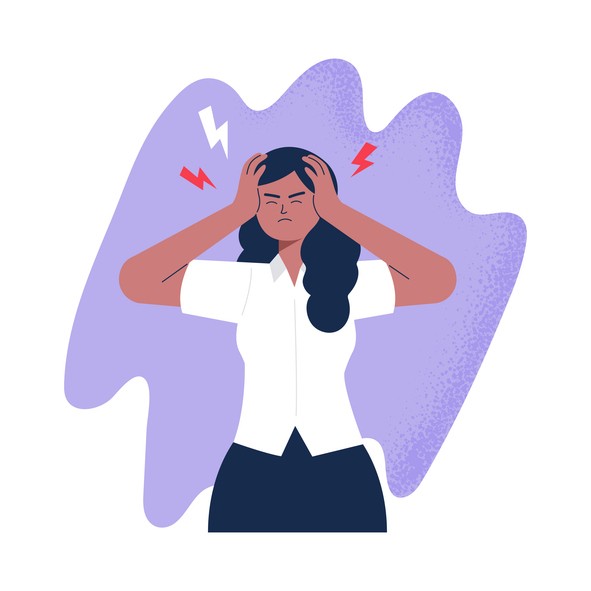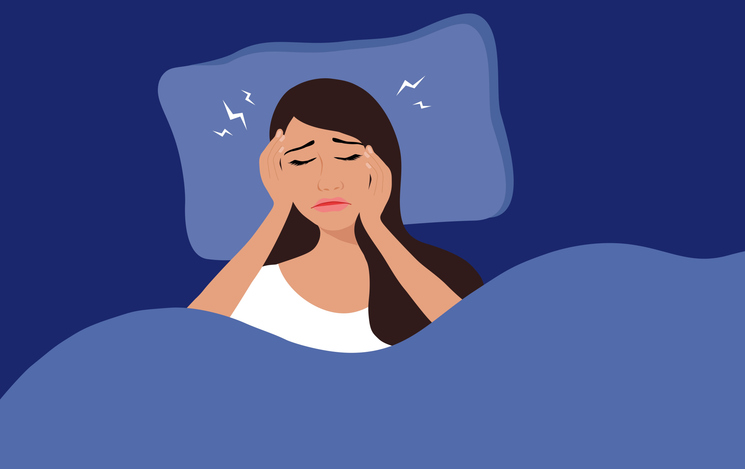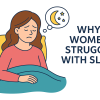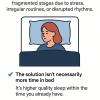Irritability
Irregular Sleep Schedules Can Trigger Irritability, Worsen Mood and Increase Risk of Depression
We've all had those weeks where our sleep schedule is completely off the rails. Maybe you stayed up late binge-watching your favorite show, pulled an all-nighter to meet a deadline, or simply couldn't fall asleep despite your best efforts. While an occasional disruption might seem harmless, mounting research suggests that irregular sleep patterns can significantly impact your mental health, potentially worsening your mood and increasing your risk of depression.
The Sleep-Mood Connection
Our bodies rely on consistent sleep schedules to maintain proper functioning of various biological processes. When we sleep and wake at roughly the same times each day, our internal body clock—known as our circadian rhythm—stays properly calibrated. This rhythm doesn't just regulate sleep; it also affects hormone production, body temperature, and even cognitive function.
📰 "Keeping a regular sleep-wake schedule seven days a week will help set your natural body clock and prevent jet lag–like symptoms," notes a workbook from the Veterans Administration focused on improving sleep. The comparison to jet lag is particularly apt—shifting your sleep schedule by even an hour can be the equivalent of traveling across a time zone, creating a misalignment between your internal clock and the external environment.
How Irregular Sleep Affects Your Brain and Mood
When your sleep schedule varies widely from day to day, your brain struggles to predict when it should prepare for sleep and when it should be alert. This unpredictability can lead to:
🤓 Decreased cognitive performance: Attention, memory, and decision-making skills can all suffer when sleep patterns are erratic.
Hormonal imbalances: Sleep disruptions affect the production of important mood-regulating hormones like serotonin and dopamine.
Increased stress response: Your body may produce more cortisol (the stress hormone) when sleep patterns are inconsistent.
😡 Heightened irritability: Perhaps one of the most common and immediate effects of poor sleep is increased irritability. When sleep-deprived, the emotional center of your brain—the amygdala—becomes hyperactive while the prefrontal cortex, which helps regulate emotions, becomes less effective. This combination leaves you more likely to snap at minor inconveniences, lose your patience with loved ones, and generally experience the world through a more negative lens.
Many people report that even small disruptions to their sleep schedule can leave them feeling "on edge" the next day. As one sleep researcher put it, "Sleep loss amplifies the negative emotions and diminishes the positive ones." This irritability not only affects your own wellbeing but can strain relationships with family, friends, and coworkers.
Dr. Michael Chee, whose research was published in the journal Sleep, found that even a daytime nap could restore hippocampal function—a brain region crucial for memory and mood regulation. This suggests that sleep quality and timing significantly impact brain health.
The Link to Depression
The relationship between irregular sleep and depression is increasingly clear. A study from the University of Michigan found that irregular sleep patterns were associated with:
Higher rates of depression
Lower levels of happiness and wellbeing
Greater perceived loneliness
😕 Chronic irritability that can evolve into more serious mood disorders
"When you have chronic insomnia, you begin to think about sleep in a different way than you did before," explains a cognitive behavioral therapy workbook. "You worry during the day that you won't sleep well during the night." This worry creates a vicious cycle where anxiety about sleep makes it harder to fall asleep, further disrupting your schedule.
Breaking the Cycle
If you find yourself caught in a pattern of irregular sleep, there are several evidence-based strategies that can help:
- Maintain a Consistent Wake-Up Time Even if you go to bed at different times, try to wake up at the same time every day—yes, even on weekends. This consistency helps anchor your circadian rhythm and makes it easier to fall asleep at night.
- Create a Wind-Down Routine Set aside at least an hour before bed to relax and prepare your body for sleep. This might include reading, taking a warm bath, or practicing gentle stretching.
- Limit Caffeine and Screen Time Both caffeine and blue light from screens can interfere with your body's production of melatonin, the hormone that signals it's time to sleep. Try to avoid caffeine after noon and screens in the hour before bed.
- Get Morning Sunlight Exposure to natural light in the morning helps reset your circadian rhythm and can improve sleep quality the following night.
When to Seek Help
While occasional sleep disruptions are normal, persistent irregular sleep patterns that significantly impact your mood or daily functioning warrant attention. Sleep interventions like cognitive behavioral therapy for insomnia (CBT-I), which has been shown to be highly effective for improving sleep regularity and quality.
For those looking for accessible support, digital platforms like My Sleep Plan offer CBT-I therapy and AI-powered sleep assistance that can be accessed from the comfort of your home. These platforms provide personalized sleep schedules, tracking tools, and evidence-based techniques to help regularize your sleep patterns and improve your sleep quality over time. The AI sleep assistant can analyze your sleep data and offer tailored recommendations to address your specific sleep challenges, including strategies to manage irritability stemming from poor sleep.
Prioritize Your Sleep, Prioritize Your Health
Remember, consistent sleep isn't just about feeling rested—it's a fundamental pillar of mental health. By prioritizing regular sleep patterns, you're making an investment in your long-term emotional wellbeing and potentially reducing your risk of depression.







